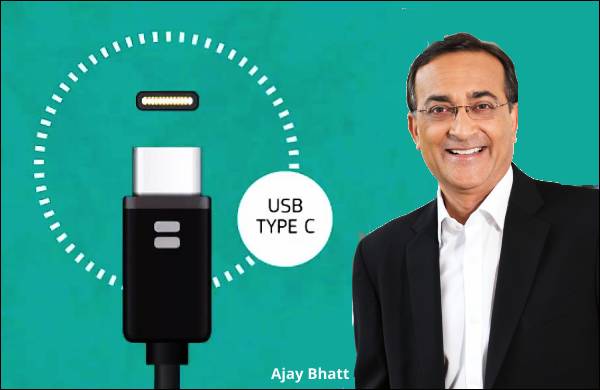
Bangalore, June 21 2022: A mandate, earlier this month by the European Parliament, requiring a single charging port for all mobile phones, tablets, cameras and headphones sold in the EU, is likely to see the underlying technology emerge as a universal global standard. Europe has identified the USB Type -C as the common connector for all charging devices, to be provided by all manufacturers by late 2024.
Ajay V. Bhatt, the India-born engineer, credited as the principal architect of the USB or Universal Serial Bus connector, predicts: “As we go forward, users won't have to spend much more time rummaging around for a charger or a special cable.”
A graduate of the the Maharaja Sayajirao University of Baroda, with a Masters degree in City University of New York, United States, Vadodara-born Bhatt spent 26 years with chip-making giant Intel --and headed the team that created the specifications of the USB connector before its launch in 1995. As Chief Client Platform Architect and later Intel Fellow, he continued to guide the development of the USB connector and wrote many of the specifications of the “Type-C” USB launched 20 years later, which had the advantage of being symmetrical, that is, you could insert a Type C connector either way. In the process he earned dozens of US and international patents.
Says Bhatt: “The USB-C connector has no up or down orientation. Line up the connector properly, and you never have to flip it over to plug it in; the "right way" is always up. The user does not have to figure out which end goes where? The connector and cable improvements in the USB-C is one of the biggest advancements in USB technology in the past 20 years.”
He adds: “In addition, the USB-C opens up a world of new possibilities for the end users, as the connector not only supports significantly fast data transfer speeds but supports even a wider variety of peripherals including disk drives, high resolution displays, audio etc.”
USB connectors will soon carry significant power
The latest release of standard, the USB PD Revision 3.1 in 2021, “is a major update to enable delivering up to 240W of power over full featured USB Type-C cable and connector”, says Bhatt, “ I sincerely hope that this new specification will extend our original vision of a universal data and charging port for a new class of applications."
Portable device chargers are currently divided between the Type-A non-reversible and the Type-C reversible charger used by most gadgets including all Android hand phones and tablets. Apple iPhones devices use a proprietary “Lightning” charger. After the EU decree all these devices and phones will need to adopt the Type-C USB as the connector.
Bhatt agrees with the EU’s logic that a universal charger will reduce carbon dioxide emissions and prevent waste, while also eliminating the costs of buying multiple chargers for different devices.
Inventor never profited
There are an estimated 6 billion USB connectors in use worldwide, but the key inventor, Bhatt, never made a single paisa in royalties – because both Intel and he decided to release the technology as a free-to-use Open Standard.
Now 65, he is currently a technology expert and consultant settled in the Portland (Oregon) region of the US.
(This article appeared earlier today at Swarajyamag)